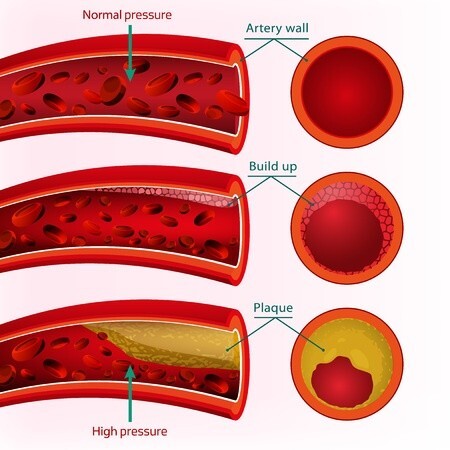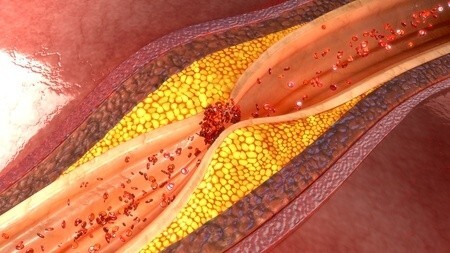
IF THERE WAS A KILLER loose in your neighborhood, you would no doubt be doing everything possible to stay safe. Yet there’s a killer inside many of our bodies that we blithely ignore even though it cuts down more people each year than cancer and nicotine combined. It’s called stress. And it’s not your friend. It's a serial killer.
Sarah Speck, a cardiologist at Swedish Hospital in Seattle, calls stress “the new tobacco.” Like tobacco, it constricts arteries, but it does it much faster than smoking. Stress also kills people much more quickly than alcoholism, since the damage it wreaks on your cardiovascular system causes heart attacks and other cardiovascular issues than take you down swiftly in the prime of life.
And a major factor in those quick demises is job stress, something that can be managed by individuals and companies. It happened to an executive at a consulting firm where I led a work-life balance program. It came out that a colleague had a heart attack a few months earlier. This hard worker was found dead on the bathroom floor of his hotel room on a business trip. He was only in his thirties. I've talked to people who have had stress-related heart attacks in their twenties.

Impact of high blood pressure.
STRESS EQUIVALENT TO FIVE PACKS A DAY
Chronic stress takes a massive toll on personnel and bottom lines, which is why stress management is so critical. Some 40% of employee turnover is due to stress. Meanwhile, the tab paid by American business due to employee stress—medical bills, recruiting, training, absenteeism—amounts to $407 billion per year, reports Peter Schnall, a clinical professor of medicine at U. C. Irvine and author of Unhealthy Work.
In a study that tracked subjects for 14 years, researchers at Columbia University found that people who feel anxious and overwhelmed are 27% more likely to have a heart attack. We will learn a few paragraphs down why that is. The scientists on this study said that stress is equivalent to smoking five packs of cigarettes per day.
There are two main reasons why stress flourishes: 1) We simply never get the information on how to prevent and contest stress. Why isn’t this taught from grade school on? How many more important things are there than how to manage our minds so that autopilot emotional reactions don’t turn on our ancient defense machinery for nothing and the physiological changes that wreak havoc on our bodies?
And 2) We can’t see stress or the damage it’s inflicting inside us. It’s the Invisible Epidemic. We don’t talk about it sometimes even with those closest to us. A social worker in Pittsburgh told me about how chronic stress from work overload touched off a nervous breakdown and hospitalization for her. She hadn’t even told her husband about the pressure that had driven her body to the brink.
THE DANGER OF CHRONIC STRESS
To put some imagery behind the secret agent of stress, let’s start with the impact stress has on the cardiovascular system. The central problem with stress is that, if it goes off for a few minutes or an hour, that’s not a problem for your health. The danger from stress comes from having the stress response activated all day every day for days, weeks, months, or years because of chronic stress.
This is because in the short-term interest of pushing blood to your arms and legs to fight or run from a threat to life and limb, your body has to do things that over a prolonged period subject your body to major health damage.

Plaque pinches blood flow.
HOW STRESS BLOWS UP BLOOD VESSELS
When the stress response is activated, one of the immediate effects is an increase in blood pressure. If the trigger driving the stress response isn’t turned off, then that blood will continue to rage through your system in what we know as hypertension, chronic high blood pressure. That causes damage down the line to an array of cardiovascular functions.
The blood doesn’t just move faster; it gushes like a flood, distending and ballooning blood vessels into fire hoses. If this goes on for a long period of time, arteries and veins suffer severe wear and tear. To manage the torrent, the body grows additional muscle tissue around the blood vessels, helping to regulate the extra load. In time, this muscle starts to tighten around the vessels, restricting the flow. This causes blood pressure to rise further to push blood through the narrower passages.
The force of the blood flow eventually takes a toll on the heart, as it plows into the heart muscle wall. In response to the repeated impacts, the heart muscle thickens, leading to left ventricle hypertrophy as one side of the heart is now larger than the other. This can cause an irregular heartbeat.
Meanwhile, within blood vessels, other hazards are developing. Like anything overused, the lining in the veins gets worn out and starts to break down in little crater-like spots. This activates immune cells to swarm in and cluster around the injured areas, as well as platelets that promote clotting. The stress response also cuts loose all the energetic resources in your body, from fat to the bad cholesterol, and they can contribute to clotting in blood vessels and the buildup of plaque that leads to atherosclerosis. Stress increases the bad cholesterol and decreases the good kind.
Continued stress leads to more gushing of blood and damage inside the arteries, as pieces of plaque are ripped away and sent traveling through the system. If one of them clogs the coronary artery, it sets off a heart attack.
FEEL SOMETHING, SAY SOMETHING
This is but a small slice of what stress can do to us, if left unchallenged. That is what happens most of the time. While we hear constant advice on what foods to eat to avoid cardiovascular disease or diabetes, another condition stress can incite, we hear next to nothing about the much bigger role stress plays.
That can change, when we can talk about stress and impacts we may feel physically or mentally like any other health issue or work performance obstacle, proactively seek out stress management solutions, and use the proven tools to get healthy and work smarter.
If you would like to find out more about our stress management training workshops for organizations or are interested in individual stress management coaching, please click the buttons below for more details.





